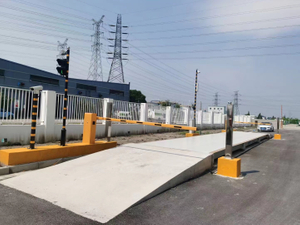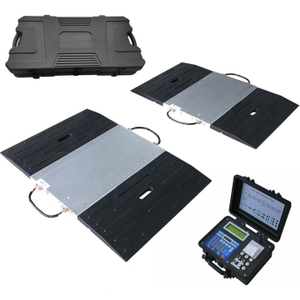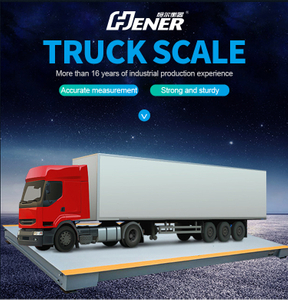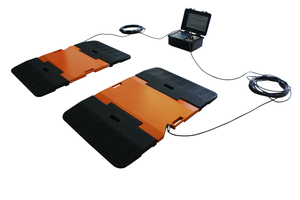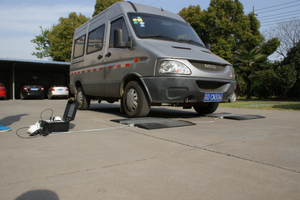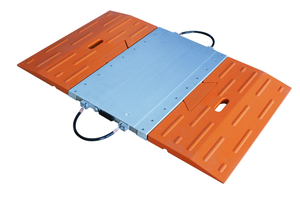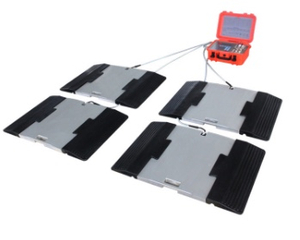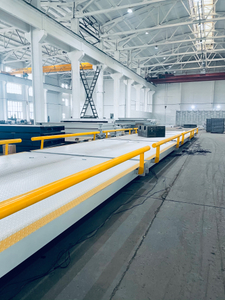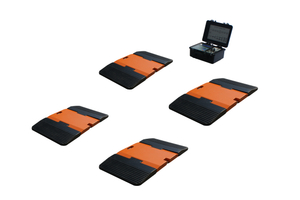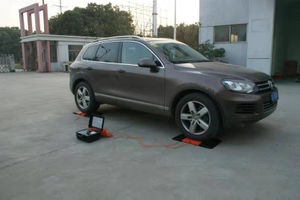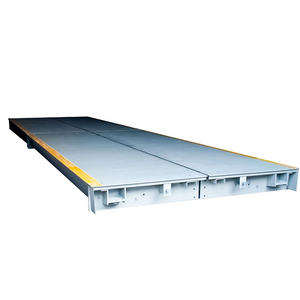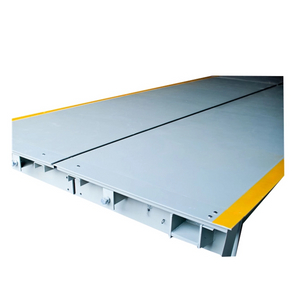In the world of logistics and heavy transportation, accurate axle weighing is crucial for ensuring safety, compliance with legal weight limits, and optimizing load distribution. Whether you're a truck scale station owner, a scale distributor, or a procurement officer, understanding how to weigh each axle effectively is essential for your business. In this guide, we'll walk you through the process of axle weighing, the equipment needed, and key considerations to keep in mind.
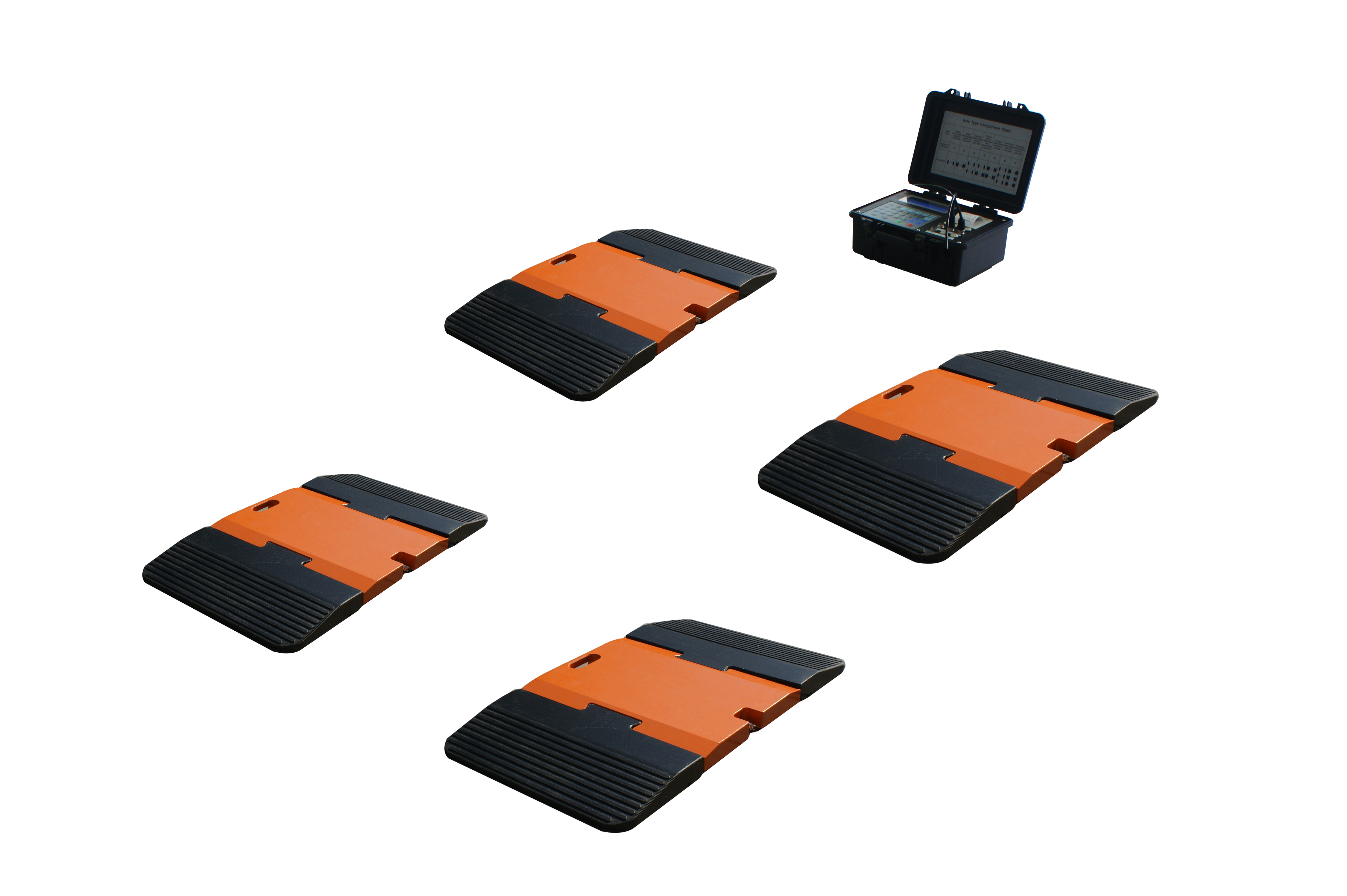
Understanding Axle Weighing: Why It Matters
Axle weighing involves measuring the weight carried by each axle of a vehicle. This is critical for several reasons:
1.Legal Compliance: Many countries, including the United States, have strict regulations on the maximum allowable weight per axle. Exceeding these limits can result in hefty fines and penalties.
2.Safety: Proper weight distribution across axles ensures vehicle stability and reduces the risk of accidents.
3.Load Optimization: Knowing the exact weight on each axle helps in optimizing the load distribution, leading to better fuel efficiency and reduced wear and tear on the vehicle.
To weigh each axle, you'll need a specialized axle scale or a weighbridge with axle load functionality. The process involves driving the vehicle onto the scale, ensuring that each axle is positioned correctly on the weighing platform, and then recording the weight readings for each axle individually.
Equipment Required for Axle Weighing
When it comes to axle weighing, the right equipment is key. Here are the main types of scales used for this purpose:
1.Axle Scales: These are portable scales designed specifically for weighing individual axles. They are compact and can be placed on any flat surface, making them ideal for mobile operations.

2.Weighbridges: Weighbridges are large scales typically used for weighing entire vehicles. However, they can also be equipped with features to measure the weight of each axle separately. This is especially useful for large vehicles like trucks and trailers.

3.Portable Wheel Load Scales: These are small, portable scales placed under each wheel. They are highly accurate and are often used in conjunction with axle scales to provide detailed weight distribution data.
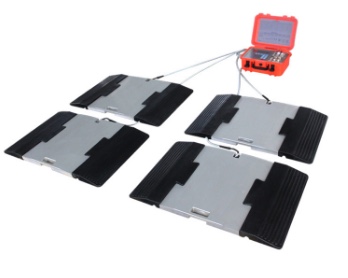
Selecting the right equipment depends on your specific needs, including the type of vehicles you handle and the scale of your operations. Now, let's dive into the step-by-step process of weighing each axle.
Step-by-Step Guide to Weighing Each Axle
1. Preparing the Vehicle:
Before weighing, ensure that the vehicle is parked on a flat, stable surface. This is crucial for accurate readings. If you're using an axle scale, make sure the scale is properly calibrated.
2. Positioning the Vehicle:
Drive the vehicle onto the scale, making sure that only the axle you want to weigh is on the weighing platform. The other axles should be off the platform. This step is vital for isolating the weight of each axle.
3. Recording the Weight:
Once the axle is correctly positioned, take the weight reading. Most modern scales will automatically display the weight, but it's essential to double-check the accuracy of the reading.
4. Repeating for Each Axle:
Repeat the process for each axle, one at a time. If using a weighbridge, the scale may allow you to weigh multiple axles at once, but individual axle weights should still be recorded for precision.
5. Verifying Total Weight:
After weighing all axles, sum the individual weights to verify the total vehicle weight. This helps ensure that there are no discrepancies and that the vehicle is compliant with legal weight limits.
6. Analyzing the Data:
Use the axle weight data to analyze load distribution. If the weight is unevenly distributed, consider adjusting the load to balance the weight across all axles. This can prevent potential safety issues and optimize vehicle performance.
Common Challenges in Axle Weighing and How to Overcome Them
Axle weighing can present several challenges, especially in large-scale operations. Here’s how to address them:
1. Uneven Surfaces:
An uneven surface can skew the weight readings, leading to inaccurate data. Always ensure that the weighing area is flat and level. If necessary, use portable leveling mats under the scales.
2. Calibration Issues:
Regular calibration of your scales is essential to maintain accuracy. Consider setting a routine calibration schedule and use certified weights to verify the scale's accuracy.
3. Time Constraints:
In busy operations, taking the time to weigh each axle individually can be a challenge. To speed up the process without sacrificing accuracy, consider investing in advanced weighbridges that can measure multiple axles simultaneously.
4. Communication with Suppliers:
If you're sourcing scales internationally, communication with suppliers can be a pain point. Make sure to choose a supplier like HENER that offers efficient communication, transparent pricing, and reliable logistics support to avoid delays and misunderstandings.
Choosing the Right Supplier for Axle Weighing Equipment
For procurement officers and scale distributors, selecting the right supplier is crucial. Here are a few factors to consider:
1. Quality and Certification:
Ensure that the scales meet international quality standards and are certified for accuracy. HENER's products, for example, are known for their top-quality materials and customizable structures, making them a reliable choice.
2. Pricing:
Competitive pricing is essential, especially if you're distributing these scales at a premium. Look for suppliers that offer bulk pricing and are open to negotiations.
3. Logistics:
Efficient shipping and handling are critical to avoid delays. Delayed shipments can lead to missed sales opportunities, especially during peak seasons. HENER’s streamlined logistics support ensures timely delivery to your destination.
4. After-Sales Support:
Choose a supplier that provides robust after-sales support, including technical assistance and maintenance services. This ensures that any issues with the equipment are quickly resolved, minimizing downtime.
Summary
Accurately weighing each axle is a fundamental aspect of vehicle safety, compliance, and load optimization. Whether you're a procurement officer, a scale distributor, or a truck scale station owner, understanding the process and having the right equipment is key to success. By choosing reliable, high-quality scales from trusted suppliers like HENER, you can ensure that your operations run smoothly, your vehicles remain compliant, and your business thrives. For more information on top-quality weighing solutions, visit HENER's official website We are here to support your business with the best products and services in the industry.
English
العربية
Français
Русский
Español
Português
Deutsch
italiano
Nederlands
Tiếng Việt
ไทย
Polski
Türkçe
ភាសាខ្មែរ
Bahasa Melayu
Filipino
Bahasa Indonesia
Română
Čeština
Монгол
қазақ
Српски
हिन्दी
Slovenčina
Slovenščina
Norsk
Svenska
Ελληνικά
Suomi
Հայերեն
Latine
Dansk
Shqip
Hrvatski
Afrikaans
Gaeilge
Eesti keel
Oʻzbekcha
latviešu
Azərbaycan dili
Беларуская мова
Български
ქართული
guarani
Кыргызча
Lietuvių
Македонски
Malti
Soomaali
Тоҷикӣ
Türkmençe





